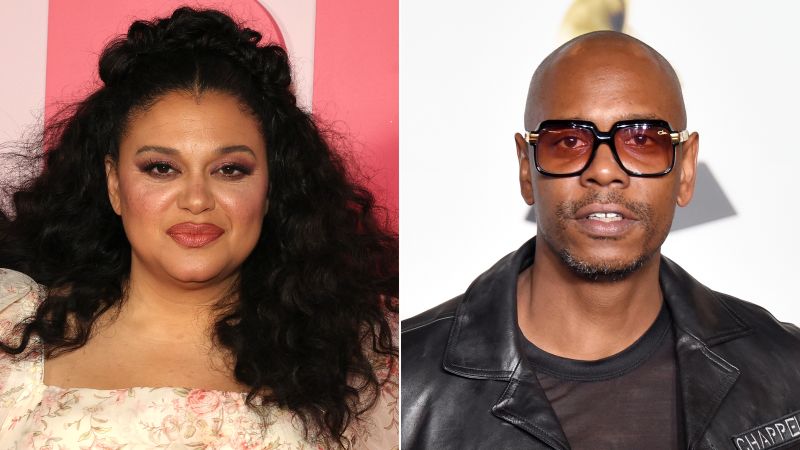In her latest comedy special, titled “A Buteau-ful Mind,” comedian and actress Michelle Buteau took aim at fellow comedian Dave Chappelle, criticizing his past and often contentious jokes regarding transgender individuals. Buteau’s critique comes as part of a larger conversation within the comedy community about the responsibilities of comedians in approaching sensitive topics, especially those involving marginalized groups.
While performing at the iconic Radio City Music Hall in New York City, Buteau described Chappelle’s remarks as “dangerous.” She effectively used her platform to showcase how humor can be employed in a respectful and inclusive manner. During her set, she shared a risqué anecdote involving a “beautiful, Black lesbian friend,” illustrating that comedy can be entertaining without being harmful. “For the most part, we laughed,” she noted, emphasizing the positive reaction from her audience and suggesting that laughter can foster understanding rather than resentment.
Expressing a sentiment that resonated with her crowd, she asserted, “What I’m saying is it can be done. It can be done. We can tell jokes and stories and not disparage a whole community.” This statement was met with applause, indicating the audience’s agreement with her stance that comedy should uplift rather than demean. Buteau encouraged her audience to strive for humor that is grounded in kindness, a message that aligns with contemporary discussions about the social responsibilities of comedians.
Buteau’s commentary didn’t stop there. She made an ironic plea to those in attendance to relay her thoughts to Chappelle, whom she referred to as the “GOAT,” an acronym for “Greatest of All Time.” Playfully acknowledging his status in the comedy world, she continued with a serious note, stating that if being “the GOAT” involves making jokes at the expense of transgender individuals, then that form of comedy is misplaced. “Dave, it’s not funny. It’s dangerous,” she emphasized, expressing her incredulity about the financial success of comedians who provoke discomfort and insecurity among specific communities. This juxtaposition of serious concerns with her comedic approach made her argument even more compelling.
Moreover, Buteau shared her aspirations as a performer, stating, “I want to make millions and millions of dollars for making people feel safe, seen, secure, heard, and entertained!” In this statement, she laid bare the contrasting aspirations of comedians: the choice between making money off sensationalism versus nurturing a more inclusive atmosphere through humor.
Buteau’s remarks come on the heels of significant backlash that Chappelle faced due to comments made in his own specials, most notably “The Closer,” released in 2021. This Netflix special, among others, led to widespread accusations of transphobia and sparked discussions about the boundaries of comedic expression. Chappelle subsequently addressed the outrage during a performance in Nashville, showcasing his own method of dealing with controversy.
Prior to “The Closer,” Chappelle drew criticism for comments made about Caitlyn Jenner in his 2019 special “Equanimity” and for jokes about the transgender community in “Sticks and Stones.” These patterns contribute to the ongoing dialogue about where the line lies between comedy and insensitivity—an issue that comedians like Buteau are increasingly keen to address.
On the heels of her critical commentary, Buteau’s special “A Buteau-ful Mind” premiered on New Year’s Eve, marking a significant milestone as it was her second Netflix special, following the success of her debut “Welcome to Buteaupia.” This performance also distinguished itself by being the first time a female comic had filmed at Radio City Music Hall, a feat that only elevates Buteau’s voice in the comedy landscape.
In summary, Michelle Buteau’s recent special is not only an expression of her comedic style but also a reflection of the current cultural context regarding humor and its implications. As Buteau continues to shine in her comedic career, she adds her unique perspective to the ongoing conversation about inclusivity and respect within the realm of comedy.



